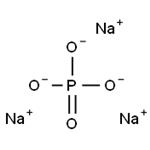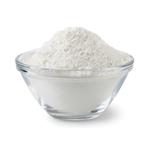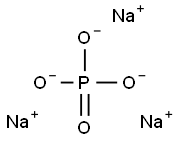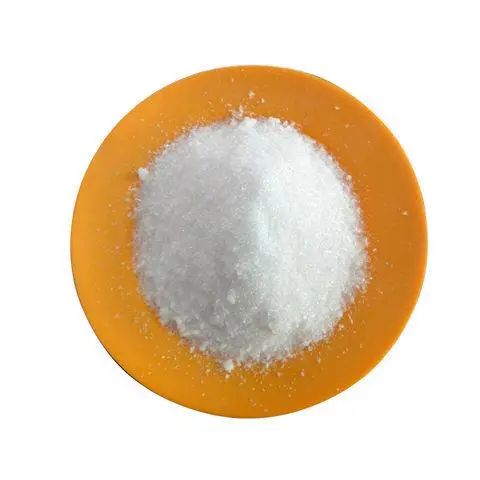What function does Trisodium Phosphate serve in cereals
Introduction
Phosphorus is a critical mineral in milk, beans, meat, fish, eggs, poultry, and nuts. “Sodium phosphate” refers to a group of phosphorus-derived food additives. These additives are made from various combinations of sodium (salt) and inorganic phosphate, a phosphorus-derived chemical compound. This type of natural phosphorus, known as organic phosphorus, is essential for bone health, cellular repair, muscle contraction, and nerve function, among other vital processes. Inorganic phosphorus includes phosphorus-derived food additives like trisodium phosphate, which are added to foods as an ingredient.
Trisodium phosphate

Trisodium phosphate (TSP) is one of the most common types of sodium phosphate additives and can be found in various foods. It and other phosphate additives are routinely used in fast food and other highly processed products. It is also an alkaline detergent that the USDA has approved for use as a spray application or carcass dip at 8–12% concentrations. As an antimicrobial, TSP removes attached bacteria from carcass surfaces using its surfactant properties and high alkalinity (pH of about 12.0)[1]. In addition, TSP kills bacteria by disrupting the cell membrane and causing leakage of cellular material. Slavik et al. (1994) found that Campylobacter levels were significantly reduced when poultry carcasses were dipped in a 10% TSP solution after chilling. In another study, TSP (8%) was shown to reduce levels of S and Typhimurium on chicken skin effectively.
Uses
As a common breakfast cereals addition, TSP serves many purposes as an acidity regulator, color stabilizer, and texture enhancer.
TSP, as an alkaline chemical, effectively modulates the acidity of cereals. A food product’s acidity or alkalinity significantly impacts its flavor profile. Cereals with high acidity can develop an unpleasant tartness, especially if they incorporate items that naturally add to acidity, such as fruits or yogurt. However, in cereals, such acidity might have a negative impact on flavor. To address this issue, manufacturers incorporate TSP into cereal production. TSP is an alkaline compound, and when added to acidic cereals, it effectively neutralizes the excess acidity. Doing so balances the pH and ensures the cereal maintains a more harmonious and pleasing flavor profile. This adjustment in acidity contributes to a cereal that is not only more palatable but also suitable for a broader range of taste preferences.
Acidity also has an impact on the color of cereals. Cereals frequently include various ingredients, such as fruits, nuts, or grains, each with its distinct color. Over time, the colors of these ingredients can fade or leach into the cereal due to acidity and chemical changes. Additionally, cereals are exposed to various conditions during processing and storage that can further contribute to color degradation, making them appear dull or unappealing. However, regulated acidity due to TSP prevents this from occurring.
As cereals consist of ingredients with varying compositions, there is a potential for these ingredients to separate, resulting in uneven distribution within the cereal and inconsistent textures. With the addition of TSP, the ingredients are bound together. Consequently, this ensures an even distribution of ingredients, guaranteeing a consistent taste and texture with every bite.
Safety
Regarding food additives, people are most concerned about their impact on health.
The USDA states that trisodium phosphate is generally safe, but that is not always the best measurement of health. Case in point: The USDA has no grains or added sugar issues.
On the other hand, some organizations are skeptical. The Environmental Working Group, for example, believes sodium phosphates are of “moderate concern.” The non-profit organization cites several studies noting that sodium phosphates have been linked to an increased risk of chronic kidney disease, cardiovascular disease, and coronary artery disease.
A Washington Post article, which noted the use of phosphates in packaged meats, quoted experts who said that phosphates are connected to many health risks, including early death. The problem is that a lot of research about phosphates is ongoing, leaving several questions needing to be answered.
Reference
[1] Byrd, J. S. Mckee and G. Mead. “Improving slaughter and processing technologies.”Food Safety Control in the Poultry Industry 2005: 310-332.
You may like
Related articles And Qustion
See also
Lastest Price from Trisodium phosphate manufacturers

US $1.50/g2025-06-25
- CAS:
- 7601-54-9
- Min. Order:
- 1g
- Purity:
- 99.0% Min
- Supply Ability:
- 10 Tons

US $30.00/kg2025-04-21
- CAS:
- 7601-54-9
- Min. Order:
- 1kg
- Purity:
- 0.99
- Supply Ability:
- 100 tons




